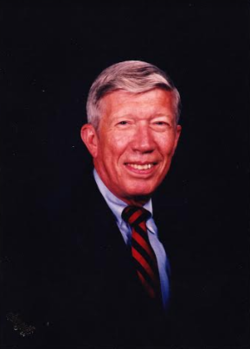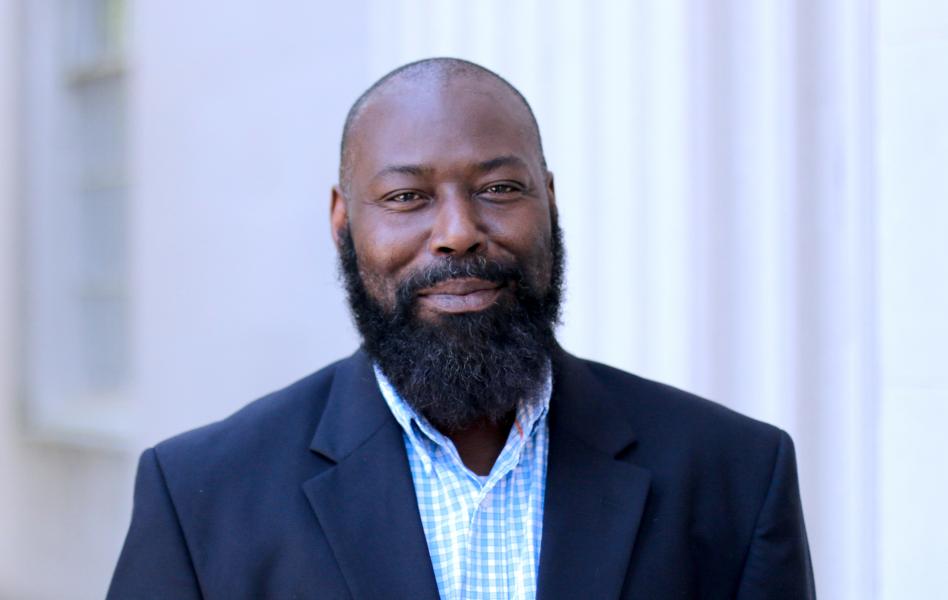“Ray Dawson didn’t do anything funny or foolish.”

Ray Dawson
Felix Joyner, former vice president of finance of the University of North Carolina, was talking about his former colleague who died June 2 in Chapel Hill.
Joyner and Dawson were UNC President William Friday’s key lieutenants from the time of the restructuring of the university in 1971 and 1972 until Friday’s retirement in 1986.
Prior to the legislature’s action, UNC’s six campuses at Chapel Hill, Greensboro, Raleigh (N.C. State), Asheville, Charlotte, and Wilmington operated under a 100-person board of governors, with Friday as president. The other institutions, including regional universities and historically black colleges, operated independently. The General Assembly’s action brought all the state’s public four-year institutions of higher education under a 32-person board of governors and one president.
Friday became president of the new entity, and he asked Dawson to become vice president for academic affairs. Dawson, a native of Arkansas, earned his Ph.D. from UNC-Chapel Hill and later returned to teach political science and serve for eight years as dean of arts and sciences until Friday’s offer.
According to William Link, author of “William Friday: Power, Purpose, & American Higher Education,” “The creation of a new multicampus system became a challenge for Bill Friday and Ray Dawson. Although the consolidated university had existed since 1931, the restructuring meant, as Dawson recalled, ‘something very new and different’: the university was venturing into ‘uncharted territory’ with minefields of troubling issues.”
One of those big minefields was the ambition of many of the universities to expand their offerings, add graduate programs, and open professional schools. Dawson told Link that Friday’s office, called the General Administration, knew little about 10 of the 16 campuses and a “fleshing out of the structure itself” was required. Determining the various missions for each campus was essential, but was a “tall order.”
Over a reasonably short time during the early 1970s, Friday’s and Dawson’s efforts in bringing the universities into a functioning system “propelled Friday into the limelight in national higher education circles.”
Dawson gave Friday full credit. He told Link, “It took a rare and unusual kind of leadership to bring this confederation together and make it work.”
And it took Dawson’s thorough planning to give Friday the tools to make it work.
From the beginning of the new organization, it was clear that a major challenge would be, as Link put it, “How could the desegregation of traditionally white and traditionally black institutions best be accomplished?”
This question vexed Friday and Dawson for years. Federal officials in the Office of Civil Rights of the Department of Health Education and Welfare, spurred on by civil rights organizations, pushed harder and harder for more vigorous plans and action.
This task was troubling for Dawson. He told Link, “We had all been proponents of integration of the university. And some of us had had an active role, for example, in working to increase black enrollment at Chapel Hill and elsewhere. Just the symbolism of being in conflict with or at odds with the civil rights establishment was painful.”
Finally, in 1981, a consent degree, negotiated and drafted by Dawson, ended the conflict.
When Friday retired in 1986 and C.D. Spangler succeeded him, Dawson became the new president’s right-hand man. Quietly and loyally, he steered Spangler successfully through the troubled waters of higher education administration until Dawson stepped down in 1992
In appreciation for this service, Spangler and his family’s foundation established the Raymond H. Dawson Distinguished Professorship at UNC-Chapel Hill.
Like Friday and Spangler, North Carolinians who love their state universities can be thankful that Ray Dawson in his service “never did anything funny or foolish.”
 D.G. Martin hosts “North Carolina Bookwatch,” Sunday 11:00 am and Tuesday at 5:00 pm on UNC-TV. The program also airs on the North Carolina Channel Tuesday at 8:00 pm and other times.
D.G. Martin hosts “North Carolina Bookwatch,” Sunday 11:00 am and Tuesday at 5:00 pm on UNC-TV. The program also airs on the North Carolina Channel Tuesday at 8:00 pm and other times.
To view prior programs: http://video.unctv.org/show/nc-bookwatch/episodes/









